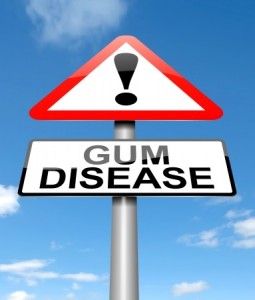Specialist Dental Group has launched an on-going series of blog posts by our individual dental specialists. All views provided are the dentist’s own opinions and are posted on this blog as part of our on-going efforts to educate the public about dental issues and other matters of interest relating to dentistry and healthcare.
 It was reported in a Straits Times article on September 25, 2012 that the number of centurians has hit a new high in Japan, with some 51,376 people over the age of 100 living in Japan. While there are not many centurians in Singapore, Singapore’s life expectancy remains among the top 5 in the world, and is one of the world’s fastest aging population. Based on Singapore government, statistics in 2009, half of Singaporeans aged 65 can expect to live beyond the age of 85.
It was reported in a Straits Times article on September 25, 2012 that the number of centurians has hit a new high in Japan, with some 51,376 people over the age of 100 living in Japan. While there are not many centurians in Singapore, Singapore’s life expectancy remains among the top 5 in the world, and is one of the world’s fastest aging population. Based on Singapore government, statistics in 2009, half of Singaporeans aged 65 can expect to live beyond the age of 85.
Faced with an aging population, the prevalence of tooth loss is inevitably on the rise. As a logical consequence, dental implants replacing missing teeth have been increasingly popular as a treatment modality, which is hardly surprising given how much science and technology had advanced in the past few decades.
Unlike dentures, implant teeth are firm; it would not move around or pinch the gums, like dentures. Implant teeth are the closest replacement to natural real teeth. They bite and look like teeth. Numerous high quality research showed very high predictability with dental implants. A vast majority of patients generally enjoy totally trouble free implant teeth over the long run. However, our clinical experience at Specialist Dental Group (SDG) showed that a small proportion of dental implant cases may develop some gum and bone issues.
- What gum issues?
Similar to our own teeth, if the hygiene maintenance is poor, some dental implant cases may develop gum disease. Under the microscope, bacteria cells in diseased sites are very similar between infected teeth and infected implants. The collective term for this condition is referred to a peri-implant disease.
The good news is, however, the chance of gum disease in implants is lower than gum disease around teeth
- How does it happen?
This is mainly associated with poor hygiene maintenance and lack of regular professional dental care. Some patients may be at a higher risk of developing implant gum diseases compared to others.
- Who is at risk?
Like how bacterial plaque leads to gingivitis and periodontitis, bacterial plaque can also induce implant infections. Bacteria accumulation and calculus/tartar (dental stones) formation also occur around dental implants. If left untreated, this may lead to oral hygiene, individuals who smoke and patients with history of gum disease (periodontitis) are found to be at greater risk for the development of implant gum diseases.
- Can it be treated?
Various treatments have been proposed for the effective management of implant gum diseases. While non-surgical therapy alone may be effective in certain cases, surgical treatment is advocated for others.
As the old saying goes, ‘prevention is better than cure’. It is of utmost importance to keep the implant restorations as well as the other clean. Regular professional dental visits (once every 6 months) and meticulous home care are essential for a healthy mouth and healthy dental implants. This is the best way to keep your dental implant investment smiling always.
Dr Daylene Leong is a Dental Surgeon with Specialist Dental Group®, Singapore. She received her training in the specialty area of Periodontology from the University of Michigan, USA. Dr Leong is a Diplomate of the American Board of Periodontology and a Clinical Tutor with the National University of Singapore. She has a special interest in periodontal aesthetics, gingival plastic surgery and dental implants. For more information, visit www.specialistdentalgroup.com.






